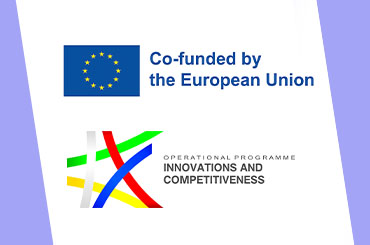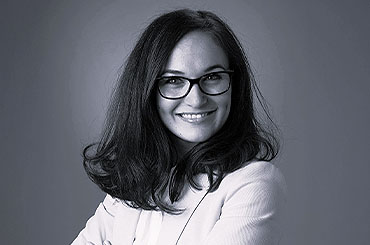



Telerik Academy has received EU funding to develop an AI-powered coding tutor as part of a project aimed at boosting innovation and competitiveness. The initiative, supported by the European Regional Development Fund, will focus on creating a functional prototype, validating the concept, and testing it in real educational environments.
Read the story
An inside look at how to start a career in UX/UI design, what skills matter most, and how the field is evolving with AI. Read more in the interview with Pavel Gospodinov - lead trainer in the Upskill UX/UI program of Telerik Academy.
Read the story
What it really takes to be a modern HR Business Partner—read the answers of Maria Gushterova, guest lecturer in Telerik Academy’s Strategic HR Upskill program. With over 14 years of experience, Maria shares how HR can drive business impact, influence executive decisions, and truly earn a seat at the table.
Read the storyReact is the most popular JavaScript library in the world and it’s considered the future of web development. Today, companies like Facebook, Instagram, Netflix, and BBC build their web apps on React. But should you learn React? We talked to industry experts.
We are happy to share that Coca-Cola, Americaneagle.com, HedgeServ, and Tick42 expand their partnership with Telerik Academy
COVID-19 revealed and validated 6 important lessons that would be helpful in everything that we do - work, study, our daily interactions. Check them out!
Meet Petya, Edo, Boyan, and Vladi, four of our trainers. They love sharing their knowledge and are ready to tell you all their secret ways of dealing with difficult situations, including this one.
A year ago, Kalina Ikonomova had little to no digital marketing experience. Today, she is a CRM Marketing Specialist at one of the most prominent Bulgarian software companies - Chaos Group. So, what changed for Kalina in the past year?
It is our mission to groom top tech talent and to connect it with leading IT companies. That is why we have built a strong partner network that constantly expands and develops. Meet our newest partners.
-(1).png?sfvrsn=5d7697d3_2)
"The advice I would give to a person going for an interview is to be yourself. There are rules for conducting interviews and many guidelines available online, but the more open the candidate is, the more successful the selection will be for both parties." Alexandra Mechkova, CEO of Telerik Academy.

In the first part of the show, Alexandra Mechkova, CEO of Telerik Academy, shared the specifics of the marketing of software companies. They also told about the history of the most successful Bulgarian software company "Telerik", from which the "Telerik Academy" was later created, which offers training in the IT sector for adults.
-(1).png?sfvrsn=5d7697d3_2)
Irina Lilova, our Talent Success Manager: My advice to every young person is to participate as actively as possible in choosing the right environment for them and in shaping the one they are already in. Think about yourself in the future and what you want to be - professionally and personally.

Telerik Academy is the place where you can launch an IT career in just 6 months, regardless of your background, education or age. And the technical trainers have a crucial role in this process. Meet them in the interview with economy.bg.
-(1).png?sfvrsn=e4b0050e_2)
15 companies from our country participated in one of Europe's most significant events for the technology and digitization sector - Web Summit 2022, in Lisbon, Portugal. At the event, Minister of Innovation and Growth Alexander Pulev met with entrepreneurs, some of whom were from Telerik Academy.